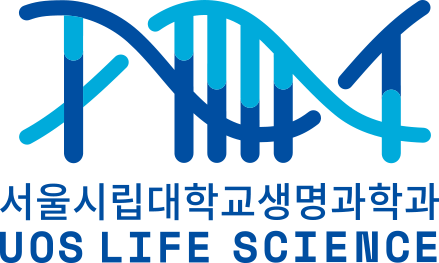2022.12.14
Latest Publications more +
Targeting a chemo-induced adaptive signaling circuit confers therapeutic vulnerabilities in pancreatic cancer.
Saito Y, Xiao Y, Yao J, Li Y, Liu W, Yuzhalin AE, Shyu YM, Li H, Yuan X, Li P, Zhang Q, Li Z, Wei Y, Yin X, Zhao J, Kariminia SM, Wu YC, Wang J, Yang J, Xia W, Sun Y, Jho EH, Chiao PJ, Hwang RF, Ying H, Wang H, Zhao Z, Maitra A, Hung MC, DePinho RA, Yu D.
Cell Discov.,
2024,
10(1):109.,
Retinoic acid-induced protein 14 links mechanical forces to Hippo signaling.
Jeong W, Kwon H, Park SK, Lee IS, Jho EH.
EMBO Rep. ,
2024,
25: 4033 - 4061,
Phosphorylation of EIF2S1 (eukaryotic translation initiation factor 2 subunit alpha) is indispensable for nuclear translocation of TFEB and TFE3 during ER stress.
Thao Thi Dang, Mi-Jeong Kim, Yoon Young Lee, Hien Thi Le, Kook Hwan Kim, Somi Nam, Seung Hwa Hyun, Hong Lim Kim, Su Wol Chung, Hun Taeg Chung, Jho EH, Hiderou Yoshida, Kyoungmi Kim, Chan Young Park, Myung-Shik Lee, Sung Hoon Back.
Autophagy,
2023,
19(7); 2111–2142,
Regulation of Hippo signaling by metabolic pathways in cancer.
Lee U, Cho E, Jho EH.
Biochim Biophys Acta Mol Cell Res.,
2022,
1869(4);119201,
Past, Present, and Future Perspectives of Transcription Factor EB (TFEB): Mechanisms of regulation and association with disease.
Tan A*, Prasad R*, Lee C, and Jho EH.
Cell Death Differ.,
2022,
29(8);14331449,
O-GlcNAcylation: An Emerging Protein Modification Regulating the Hippo Pathway.
Kim E, Kang JG, Jho EH, Yang WH, Cho JW.
Cancers (Basel).,
2022,
14(12):3013,
Systemic TM4SF5 overexpression in Apc Min/+ mice promotes hepatic portal hypertension associated with fibrosis
Lee J, Kim E, Kang MK, Ryu J, Kim JE, Shin EA, Pinanga Y, Pyo KH, Lee H, Lee EH, Cho H, Cheon J, Kim W, Jho EH, Kim S, Lee JW.
BMB Rep.,
2022,
55(12);609-614,
SGK1 inhibition in glia ameliorates pathologies and symptoms of Parkinson's disease.
Kwon O, Song J, Yang Y, Kim S, Kim J, SeoK M, Hwang I, Yu J, Jenisha K, Maeng H, Kim J, Jho EH, Ko S, Son H, Chang M, Lee S.
EMBO Mol Med.,
2021,
13(4);e13076,
LGK974 suppresses lipopolysaccharide-induced endotoxemia in mice by modulating the crosstalk between the Wnt/β-catenin and NF-κB pathways.
Jang J, Song J, Lee H, Sim I, Kwon YV, Jho EH*, and Yoon Y*.
Exp Mol Med.,
2021,
53(3);407-421,
PARsylated transcription factor EB (TFEB) regulates the expression of a subset of Wnt target genes by forming a complex with β-catenin-TCF/LEF1.
Kim S, Song G, Lee T, Kim M, Kwon H, Kim J, Jeong W, Lee U, Na C, Kang S, Kim W, Seong J, and Jho EH.
Cell Death Differ.,
2021,
28(9);2555-2570,







